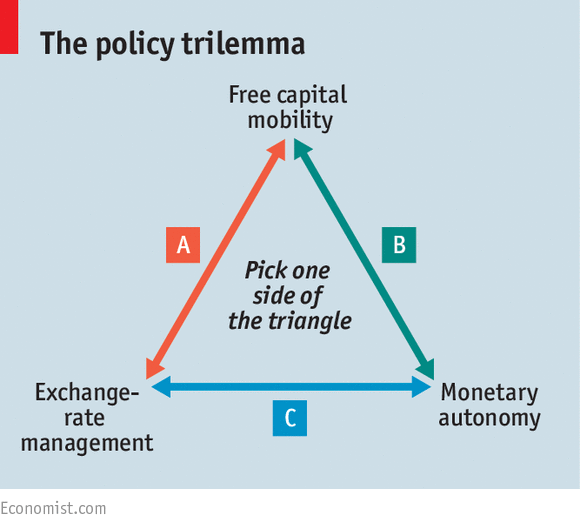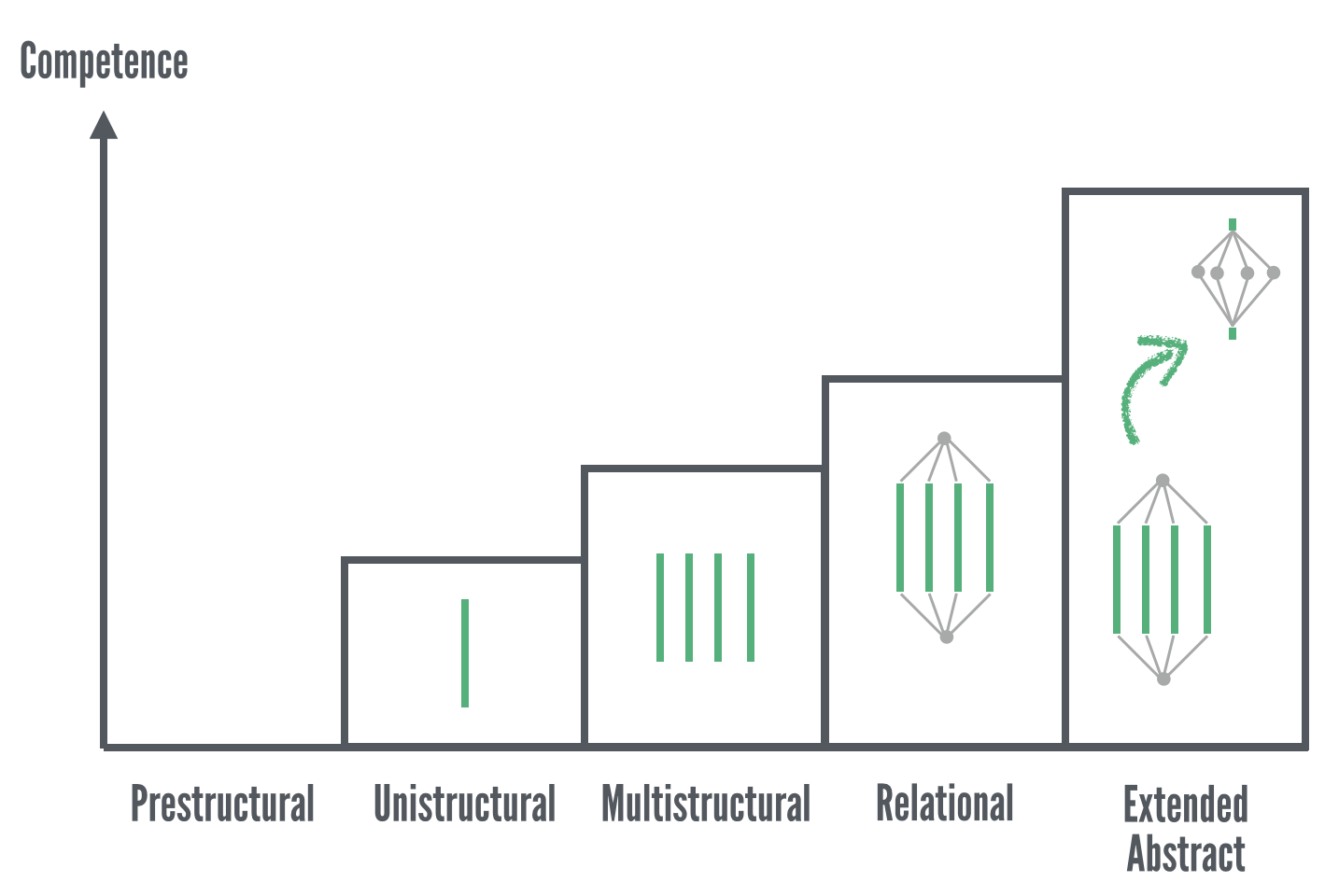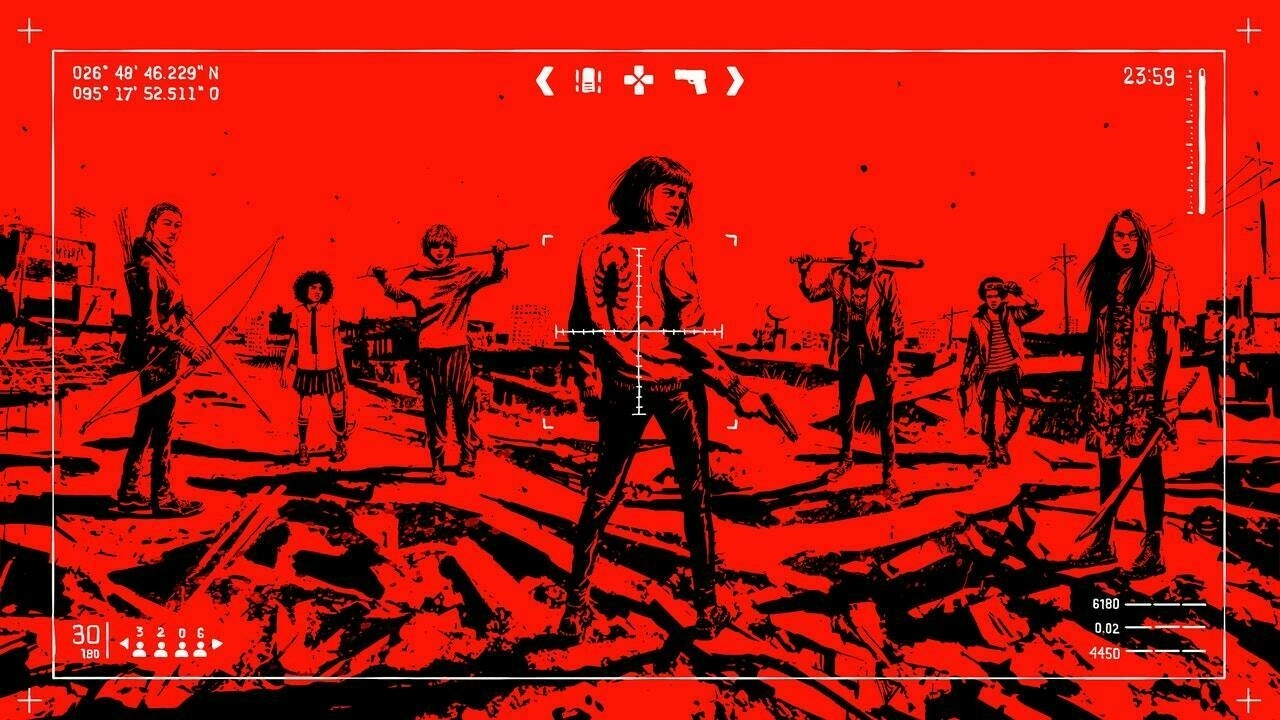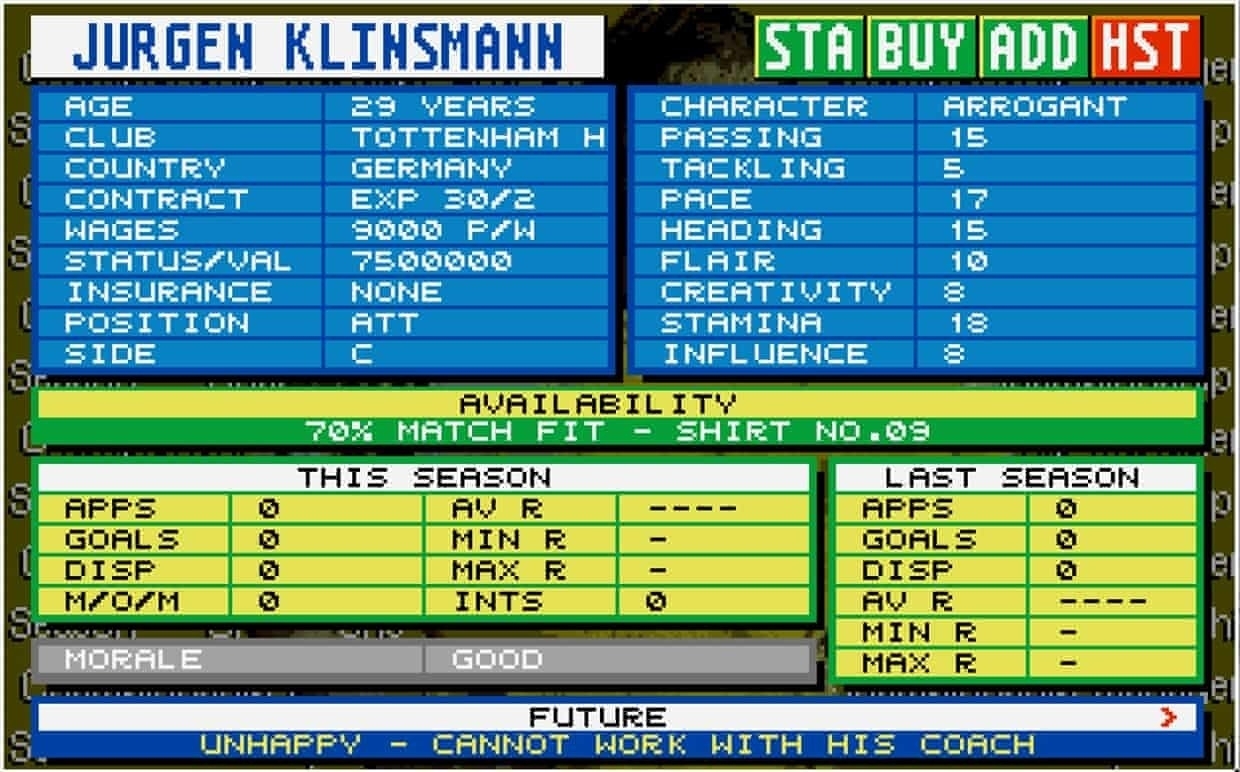- Britain's equivalent to Tutankhamun found in Southend-on-Sea (The Guardian) — "Gold foil crosses were found in the grave which indicate he was a Christian, a fact which has also surprised historians."
- Writer James Vlahos explains how voice computing will change the way we live (The Verge) — "If you’re only presenting one answer, it better not be junk. I think the conversation is going to more turn toward censorship. Why do they get to choose what is deemed to be fact?"
- Prisoner’s dilemma shows exploitation is a basic property of human society (MIT Technology Review) — "The next question this kind of work must answer is how exploitation can be avoided or what strategy exploited individuals must use to change their lot."
- What Can Video Games Teach Us About Instructional Design? (John Spencer) — "The best video games provide instant feedback. Players know where they have been, where they are, and where they are going. They don’t have to stop what they are doing in order to see their progress."
- It's Getting Way Too Easy to Create Fake Videos of People's Faces (Vice) — "Instead of teaching the algorithm to paste one face onto another using a catalogue of expressions from one person, they use the facial features that are common across most humans to then puppeteer a new face."
- Why Do You Grab Your Bag When Running Off a Burning Plane? (The New York Times) — it turns out that it's less of a decision, more of an impulse.
- If a house was designed by machine, how would it look? (BBC Business) — lighter, more efficient buildings.
- Playdate is an adorable handheld with games from the creators of Qwop, Katamari, and more (The Verge) — a handheld console with a hand crank that's actually used for gameplay instead of charging!
- The true story of the worst video game in history (Engadget) — it was so bad they buried millions of unsold cartridges in the desert.
- E Ink Smartphones are the big new trend of 2019 (Good e-Reader) — I've actually also own a regular phone with an e-ink display, so I can't wait for this to be a thing.
- AI generates non-stop stream of death metal (Engadget) — "The result isn't entirely natural, if simply because it's not limited by the constraints of the human body. There are no real pauses. However, it certainly sounds the part — you'll find plenty of hyper-fast drums, guitar thrashing and guttural growling."
- How AI Will Turn Us All Into Filmmakers (WIRED) — "AI-assisted editing won’t make Oscar-worthy auteurs out of us. But amateur visual storytelling will probably explode in complexity."
- Experts Weigh in on Merits of AI in Education (THE Journal) — "AI systems are perfect for analyzing students’ progress, providing more practice where needed and moving on to new material when students are ready," she stated. "This allows time with instructors to focus on more complex learning, including 21st-century skills."
The art of Battle Royale-style video games
My kids like Fortnite and Warzone. The backstory to the genre, as told in this article is really interesting, along with the realisation that it fuses storytelling and competition.
Video games broadly fall into two categories: those which, like sports, emphasize competition, and those which, like films, emphasize storytelling. Battle royale is a rare harmonious combination, a mode that encourages both dynamic, dramatic vignettes and high-stakes rivalry. At Infinity Ward, the Los Angeles-based co-developer of the Call of Duty series, which has long established the template for online competitive shooting games, PUBG was disruptive and divisive. “You could see it propagating through the office like wildfire,” Joe Cecot, the studio’s multiplayer-design director, said. “People were, like, ‘How do we make something like this? What would our twist on this be?’ ”Source: How “Battle Royale” Took Over Video Games | The New Yorker[…]
In the video-game medium, where players prize novelty—and, typically, not social commentary—the key to battle royale’s future may lie not in tweaking its rules but in deepening its story. In November, Activision released Warzone 2.0, which introduces some new mechanics. There’s now more than one safe circle, so players are herded into pockets of refuge, and it’s possible to interrogate downed opponents, making them reveal the position of their teammates. These embellishments add subtle points of difference, but it’s unlikely that they’ll energize the form. “Battle royale will now always be a part of the tool kit, in the same way that we’re never not going to have the fifty-two-card deck,” Lantz said. “But there’s not a lot of people making new games for the fifty-two-card deck. When a thirteen-year-old hears that there’s a new battle-royale game coming out today, it’s already a little bit boring. Like, you know, boomer stuff.”
The economics of blockchain-based gaming don't add up
Blake Robbins, who used to work on game design at Roblox, has written an in-depth post on why blockchain-based gaming will never take off.
TL;DR: not only is it likely to be a Ponzi scheme, it's just a really bad idea for basic economic reasons.

Narratives can be moulded, but unfortunately crypto gaming evangelists will not be able to change basic economics. The fact that the problem with the Mundell-Fleming trilemma and how crypto games fall on the wrong side of them from a pure game design perspective which ultimately prevent large developers from creating AAA games with open economies as well as ruining user experience is totally ignored by VCs who are funnelling absurd amounts of money into these projects makes me question if they actually believe in the narrative they’re pushing, or if they’re simply investing in token pre-sales and planning on dumping on unwitting retail bagholders.
For the record, I’m not a crypto hater or anything... [h]owever, I just don’t see the application of decentralised blockchains in gaming, there isn’t a need. Putting games on the blockchain will just result in really slow servers as everything would constantly have to be verified by a decentralised database. No one gamer has ever said: “I don’t trust Rockstar to store my data correctly which is why I won’t buy GTA V”. Building games for the sole purpose of “play to earn” or “play to own” means that players are no longer playing games for enjoyment, but rather the hope that they can monetise their holdings. Inevitably, this means that the quality of game experience will drop, as developers focus solely on how to turn every single aspect of a game into an NFT which can be traded. Collectible trading should be complementary, like in Roblox or Counter-Strike , it should not be the whole purpose of a game. You might as well scrap the game altogether, and just focus on making NFT collections like Bored Apes or Cryptopunks. Recreating games to have a similiar culture will not work out.
Virtual Photographer Of The Year awards
I love Red Dead Redemption 2, and it’s great that the stunning vistas and scenery in the game is recognised.
During London Games Festival, a 'Red Dead Redemption 2' screenshot won a competition promoting the art of virtual photography.Source: 'Red Dead Redemption 2' screenshot wins Virtual Photographer Of The Year
Games as a cultural, educational, and predictive force
As a gamer, I grow frustrated with people who don’t consider games to be an art form and vehicle for stories comparable with other cultural pursuits.
Take for example one of the biggest games of this year, the recently released Battlefield 2042. Not only is it a technical and cultural milestone, but it presents a plausible timeline for how things could go given our current trajectory: climate, migration, wars, you name it.
I highly recommend watching this 9-minute short film:2037
Humanity adapts to the new normal. Revolutions in energy, desert irrigation, hydraulic levees, and sea walls save coastal cities, reclaim farmland, and rebuild supply chains. Hope of finding stability leads to some nations re-opening their borders.
However, with no way to repatriate 1.2 billion people, No-Pats become a permanent fixture in all economic, military, and social policy making. Many No-Pats are still distrustful of the governments that exiled them and refuse calls to reassimilate. No-Pat leaders emerge, inspiring a new identity unbound to former nationality, drawing a line in the sand between the Old World and The New Normal. #WeAreNoPats becomes a rallying cry.
[embed]www.youtube.com/watch
Retro football gaming FTW
The amount of nostalgia that this article gave me was incredible. I have spent more time with the Championship Manager series of games (now Football Manager) than any game. Even FIFA.
Perhaps because it was a formative period in my life, but Championship Manager 93 and Championship Manager Italia were perhaps may favourite. I can remember playing one of them on the bus to a football tournament in Blackpool on my Dad’s laptop (with a monochrome screen!)
Theoretically, you can play these games via archive.org. But the links weren’t working for me when I tried them…
And then there was Championship Manager. The king of them all. It’s hard to explain why. It took 10 minutes to get through the classified results each week. There were about three tactics you could adopt. There was no training. But somehow it just worked. That old man on the cover pretending to be a manager pointing at you in his sheepskin coat.Source: No passing, no training, seven discs: the joys of 90s football gaming | The Guardian[…]
I recently downloaded Championship Manager 93 on my laptop. It runs slightly more quickly on a Mac. I took Cambridge United to the top of the Premier League. A front line of Darrell Powell, Dominic Iorfa and Nick Barmby were unstoppable.
Friday forebodings
I think it's alright to say that this was a week when my spirits dropped a little. Apologies if that's not what you wanted to hear right now, and if it's reflected in what follows.
For there to be good things there must also be bad. For there to be joy there must also be sorrow. And for there to be hope there must be despair. All of this will pass.
We’re Finding Out How Small Our Lives Really Are
But there’s no reason to put too sunny a spin on what’s happening. Research has shown that anticipation can be a linchpin of well-being and that looking ahead produces more intense emotions than retrospection. In a 2012 New York Times article on why people thirst for new experiences, one psychologist told the paper, “Novelty-seeking is one of the traits that keeps you healthy and happy and fosters personality growth as you age,” and another referred to human beings as a “neophilic species.” Of course, the current blankness in the place of what comes next is supposed to be temporary. Even so, lacking an ability to confidently say “see you later” is going to have its effects. Have you noticed the way in which conversations in this era can quickly become recursive? You talk about the virus. Or you talk about what you did together long ago. The interactions don’t always spark and generate as easily as they once did.
Spencer Kornhaber (The Atlantic)
Part of the problem with all of this is that we don't know how long it's going to last, so we can't really make plans. It's like an extended limbo where you're supposed to just get on with it, whatever 'it' is...
Career Moats in a Recession
If you're going after a career moat now, remember that the best skills to go after are the ones that the market will value after the recession ends. You can’t necessarily predict this — the world is complex and the future is uncertain, but you should certainly keep the general idea in mind.
A simpler version of this is to go after complementary skills to your current role. If you've been working for a bit, it's likely that you'll have a better understanding of your industry than most. So ask yourself: what complementary skills would make you more valuable to the employers in your job market?
Cedric James (Commonplace)
I'm fortunate to have switched from education to edtech at the right time. Elsewhere, James says that "job security is the ability to get your next job, not keep your current one" and that this depends on your network, luck, and having "rare and valuable skills". Indeed.
Everything Is Innovative When You Ignore the Past
This is hard stuff, and acknowledging it comes with a corollary: We, as a society, are not particularly special. Vinsel, the historian at Virginia Tech, cautioned against “digital exceptionalism,” or the idea that everything is different now that the silicon chip has been harnessed for the controlled movement of electrons.
It’s a difficult thing for people to accept, especially those who have spent their lives building those chips or the software they run. “Just on a psychological level,” Vinsel said, “people want to live in an exciting moment. Students want to believe they’re part of a generation that’s going to change the world through digital technology or whatever.”
Aaron Gordon (VICE)
Everyone thinks they live in 'unprecedented' times, especially if they work in tech.

‘We can’t go back to normal’: how will coronavirus change the world?
But disasters and emergencies do not just throw light on the world as it is. They also rip open the fabric of normality. Through the hole that opens up, we glimpse possibilities of other worlds. Some thinkers who study disasters focus more on all that might go wrong. Others are more optimistic, framing crises not just in terms of what is lost but also what might be gained. Every disaster is different, of course, and it’s never just one or the other: loss and gain always coexist. Only in hindsight will the contours of the new world we’re entering become clear.
Peter C Baker (the Guardian)
An interesting read, outlining the optimistic and pessimistic scenarios. The coronavirus pandemic is a crisis, but of course what comes next (CLIMATE CHANGE) is even bigger.
The Terrible Impulse To Rally Around Bad Leaders In A Crisis
This tendency to rally around even incompetent leaders makes one despair for humanity. The correct response in all cases is contempt and an attempt, if possible, at removal of the corrupt and venal people in charge. Certainly no one should be approving of the terrible jobs they [Cuomo, Trump, Johnson] have done.
All three have or will use their increased power to do horrible things. The Coronavirus bailout bill passed by Congress and approved by Trump is a huge bailout of the rich, with crumbs for the poor and middle class. So little, in fact, that there may be widespread hunger soon. Cuomo is pushing forward with his cuts, and I’m sure Johnson will live down to expectations.
Ian Welsh
I'm genuinely shocked that the current UK government's approval ratings are so high. Yes, they're covering 80% of the salary of those laid-off, but the TUC was pushing for an even higher figure. It's like we're congratulating neoliberal idiots for destroying our collectively ability to be able to respond to this crisis effectively.
As Coronavirus Surveillance Escalates, Personal Privacy Plummets
Yet ratcheting up surveillance to combat the pandemic now could permanently open the doors to more invasive forms of snooping later. It is a lesson Americans learned after the terrorist attacks of Sept. 11, 2001, civil liberties experts say.
Nearly two decades later, law enforcement agencies have access to higher-powered surveillance systems, like fine-grained location tracking and facial recognition — technologies that may be repurposed to further political agendas like anti-immigration policies. Civil liberties experts warn that the public has little recourse to challenge these digital exercises of state power.
Natasha Singer and Choe Sang-Hun (The New York Times)
I've seen a lot of suggestions around smarpthone tracking to help with the pandemic response. How, exactly, when it's trivial to spoof your location? It's just more surveillance by the back door.

How to Resolve Any Conflict in Your Team
Have you ever noticed that when you argue with someone smart, if you manage to debunk their initial reasoning, they just shift to a new, logical-sounding reason?
Reasons are like a salamander’s legs — if you cut one off, another grows in its place.
When you’re dealing with a salamander, you need to get to the heart. Forget about reasoning and focus on what’s causing the emotions. According to [non-violent communication], every negative emotion is the result of an unmet, universal need.
Dave bailey
Great advice here, especially for those who work in organisations (or who have clients) who lack emotional intelligence.
2026 – the year of the face to face pivot
When the current crisis is over in terms of infection, the social and economic impact will be felt for a long time. One such hangover is likely to be the shift to online for so much of work and interaction. As the cartoon goes “these meetings could’ve been emails all along”. So let’s jump forward then a few years when online is the norm.
Martin Weller (The Ed Techie)
Some of the examples given in this post gave me a much-needed chuckle.
Now's the time – 15 epic video games for the socially isolated
However, now that many of us are finding we have time on our hands, it could be the opportunity we need to attempt some of the more chronologically demanding narrative video game masterpieces of the last decade.
Keith Stuart (The Guardian)
Well, yes, but what we probably need even more is multiplayer mode. Red Dead Redemption II is on this list, and it's one of the best games ever made. However, it's tinged with huge sadness for me as it's a game I greatly enjoyed playing with the late, great, Dai Barnes.
Enjoy this? Sign up for the weekly roundup, become a supporter, or download Thought Shrapnel Vol.1: Personal Productivity!
Header image by Alex Fu
Friday fabrications
These things made me sit up and take notice:
Image via xkcd
Friday fumblings
These were the things I came across this week that made me smile:
Image via Why WhatsApp Will Never Be Secure (Pavel Durov)
The benefits of Artificial Intelligence
As an historian, I’m surprisingly bad at recalling facts and dates. However, I’d argue that the study of history is actually about the relationship between those facts and dates — which, let’s face it, so long as you’re in the right ballpark, you can always look up.
Understanding the relationship between things, I’d argue, is a demonstration of higher-order competence. This is described well by the SOLO Taxonomy, which I featured in my ebook on digital literacies:

This is important, as it helps to explain two related concepts around which people often get confused: ‘artificial intelligence’ and ‘machine learning’. If you look at the diagram above, you can see that the ‘Extended Abstract’ of the SOLO taxonomy also includes the ‘Relational’ part. Similarly, the field of ‘artificial intelligence’ includes ‘machine learning’.
There are some examples of each in this WIRED article, but for the purposes of this post let’s just leave it there. Some of what I want to talk about here involves machine learning and some artificial intelligence. It’s all interesting and affects the future of tech in education and society.
If you’re a gamer, you’ll already be familiar with some of the benefits of AI. No longer are ‘CPU players’ dumb, but actually play a lot like human players. That means with no unfair advantages programmed in by the designers of the game, the AI can work out strategies to defeat opponents. The recent example of OpenAI Five beating the best players at a game called Dota 2, and then internet teams finding vulnerabilities in the system, is a fascinating battle of human versus machine:
“Beating OpenAI Five is a testament to human tenacity and skill. The human teams have been working together to get those wins. The way people win is to take advantage of every single weakness in Five—some coming from the few parts of Five that are scripted rather than learned—gradually build up resources, and most importantly, never engage Five in a fair fight.” OpenAI co-founder Greg Brockman told Motherboard.Deepfakes, are created via "a technique for human image synthesis based on artificial intelligence... that can depict a person or persons saying things or performing actions that never occurred in reality". There's plenty of porn, of course, but also politically-motivated videos claiming that people said things they never did.
There’s benefits here, though, too. Recent AI research shows how, soon, it will be possible to replace any game character with one created from your own videos. In other words, you will be able to be in the game!
It only took a few short videos of each activity -- fencing, dancing and tennis -- to train the system. It was able to filter out other people and compensate for different camera angles. The research resembles Adobe's "content-aware fill" that also uses AI to remove elements from video, like tourists or garbage cans. Other companies, like NVIDIA, have also built AI that can transform real-life video into virtual landscapes suitable for games.It's easy to be scared of all of this, fearful that it's going to ravage our democratic institutions and cause a meltdown of civilisation. But, actually, the best way to ensure that it's not used for those purposes is to try and understand it. To play with it. To experiment.
Algorithms have already been appointed to the boards of some companies and, if you think about it, there’s plenty of job roles where automated testing is entirely normal. I’m looking forward to a world where AI makes our lives a whole lot easier and friction-free.
Also check out:
Games (and learning) mechanics
The average age of those who play video games? Early thirties, and rising. So, I’m happy to say that purchasing Red Dead Redemption 2 is one of the best decisions I’ve made so far in 2019.
It’s an incredible, immersive game within which you could easily lose a few hours at a time. And, just like games like Fortnite, it’s being tweaked and updated after release to improve the playing experience. Particularly the online aspect.
What interests me in particular as an educator and a technologist is the way that the designers are thinking carefully about the in-game mechanics based on what players actually do. It’s easy to theorise what people might do, but what they actually do is a constant surprise to anyone who’s ever designed something they’ve asked another person to use.
Engadget mentions one update to Red Dead that particularly jumped out at me:
The update also brings a new system that highlights especially aggressive players. The more hostile you are, the more visible you will become to other players on the map with an increasingly darkening dot. Your visibility will increase in line with bad deeds such as attacking players and their horses outside of a structured mode, free roam mission or event. But, start behaving, and your visibility will fade over time. Rockstar is also introducing the ability to parlay with an entire posse, rather than individual players, which should also help to reduce how often players are killed by trolls.In other words, anti-social behaviour is being dealt with by games mechanics that make it harder for people to act inappropriately.
But my favourite update?
The update will also see the arrival of bounties. Any player that's overly aggressive and consistently breaks the law with have a bounty placed on their head, and once it's high enough NPC [Non-Playing Characters] bounty hunters will get on your tail. Another mechanism to dissuade griefing but perhaps a missed opportunity to allow players to become temporary bounty hunters and enact some sweet vengeance on the players that keep ruining their gameplay.We have a tendency in education to simply ban things we don't like. That might be excluding people from courses, or ultimately from institutions. However, when it's customers at stake, games designers have a wide range of options to influence the outcomes for the positive.
I think we’ve got a lot still to learn in education from games design.
Source: Engadget
Image by BagoGames used under a CC BY license
Games (and learning) mechanics
The average age of those who play video games? Early thirties, and rising. So, I’m happy to say that purchasing Red Dead Redemption 2 is one of the best decisions I’ve made so far in 2019.
It’s an incredible, immersive game within which you could easily lose a few hours at a time. And, just like games like Fortnite, it’s being tweaked and updated after release to improve the playing experience. Particularly the online aspect.
What interests me in particular as an educator and a technologist is the way that the designers are thinking carefully about the in-game mechanics based on what players actually do. It’s easy to theorise what people might do, but what they actually do is a constant surprise to anyone who’s ever designed something they’ve asked another person to use.
Engadget mentions one update to Red Dead that particularly jumped out at me:
The update also brings a new system that highlights especially aggressive players. The more hostile you are, the more visible you will become to other players on the map with an increasingly darkening dot. Your visibility will increase in line with bad deeds such as attacking players and their horses outside of a structured mode, free roam mission or event. But, start behaving, and your visibility will fade over time. Rockstar is also introducing the ability to parlay with an entire posse, rather than individual players, which should also help to reduce how often players are killed by trolls.In other words, anti-social behaviour is being dealt with by games mechanics that make it harder for people to act inappropriately.
But my favourite update?
The update will also see the arrival of bounties. Any player that's overly aggressive and consistently breaks the law with have a bounty placed on their head, and once it's high enough NPC [Non-Playing Characters] bounty hunters will get on your tail. Another mechanism to dissuade griefing but perhaps a missed opportunity to allow players to become temporary bounty hunters and enact some sweet vengeance on the players that keep ruining their gameplay.We have a tendency in education to simply ban things we don't like. That might be excluding people from courses, or ultimately from institutions. However, when it's customers at stake, games designers have a wide range of options to influence the outcomes for the positive.
I think we’ve got a lot still to learn in education from games design.
Source: Engadget
Image by BagoGames used under a CC BY license
On playing video games with your kids
I play ‘video games’ (a curiously old-fashioned term) with my kids all the time. Current favourites are FIFA 18 and Star Wars Battlefront II. We also enjoy Party Golf as a whole family (hilarious!)
My children play different games with each other than they play with me. They’re more likely to play Lego Worlds or Minecraft (the latter always on their tablets). And when I’m away we play word games such as Words With Friends 2 or Wordbase.
The author of this article, David Cole, points out that playing games with his son is a different experience than he was expecting it to be:
So when I imagined playing video games with my son — now 6 — I pictured myself as being the Player 2 that I’d never had in my own childhood. I wouldn’t mind which games he wanted to play, or how many turns he’d take. I would comfort him through frustrating losses and be a good sport when we competed head-to-head. What I hadn’t anticipated in these fantasies was how much a new breed of video game would end up deeply altering the way we relate. Games of challenge and reflex are still popular of course, but among children my son’s age they’ve been drastically overtaken by a class of games defined by open-ended, expressive play. The hallmark title of this sort is, undeniably, Minecraft.
My son is 11 years old and my daughter seven, so what Cole describes resonates:
My son and I do still play those competitive games, and I hope that he’s learning about practice and perseverance when we do. But those games are about stretching and challenging him to fit the mold of the game’s demands. When we play Minecraft together, the direction of his development, and thus our relationship, is reversed: He converts the world into expressions of his own fantasies and dreams. And by letting me enter and explore those dream worlds with him, I come to understand him in a way that the games from my childhood do not.
The paragraph that particularly resonated with me was this one, as it not only describes my relationship with my children when playing video games, but also parenting as being vastly different (for better and worse) than I thought it would be:
The working rhythms of our shared play allow for stretches of silent collaboration. It’s in these contemplative moments that I notice how distinct this feeling is from my own childhood, as well as the childhood I had predicted for my son. I thought I would be his Player 2, an ideal peer that would make his childhood awesome in ways that mine was not. In retrospect, that was always just a picture of me, not of him and not of us.
A lovely article that reminded me of the heartwarming Player 2 video short based on a true story from a YouTube comments section...
Source: The CutListening to video game soundtracks can improve your productivity
I can attest to the power of this, particularly the Halo soundtrack:
As I write these words, a triumphant horn is erupting in my ear over the rhythmic bowing of violins. In fact, as you read, I would encourage you to listen along—just search “Battlefield One.” I bet you'll focus just a bit better with it playing in the background. After all, as a video game soundtrack it's designed to have exactly that effect.These days I prefer to listen to Brain.fm after I got a lifetime deal via AppSumo a year or so ago. I enjoy music as an art form, but I also appreciate it for the effect it can have on my brain.This is, by far, the best Life Pro Tip I’ve ever gotten or given: Listen to music from video games when you need to focus. It’s a whole genre designed to simultaneously stimulate your senses and blend into the background of your brain, because that’s the point of the soundtrack. It has to engage you, the player, in a task without distracting from it. In fact, the best music would actually direct the listener to the task.
Source: Popular Science



